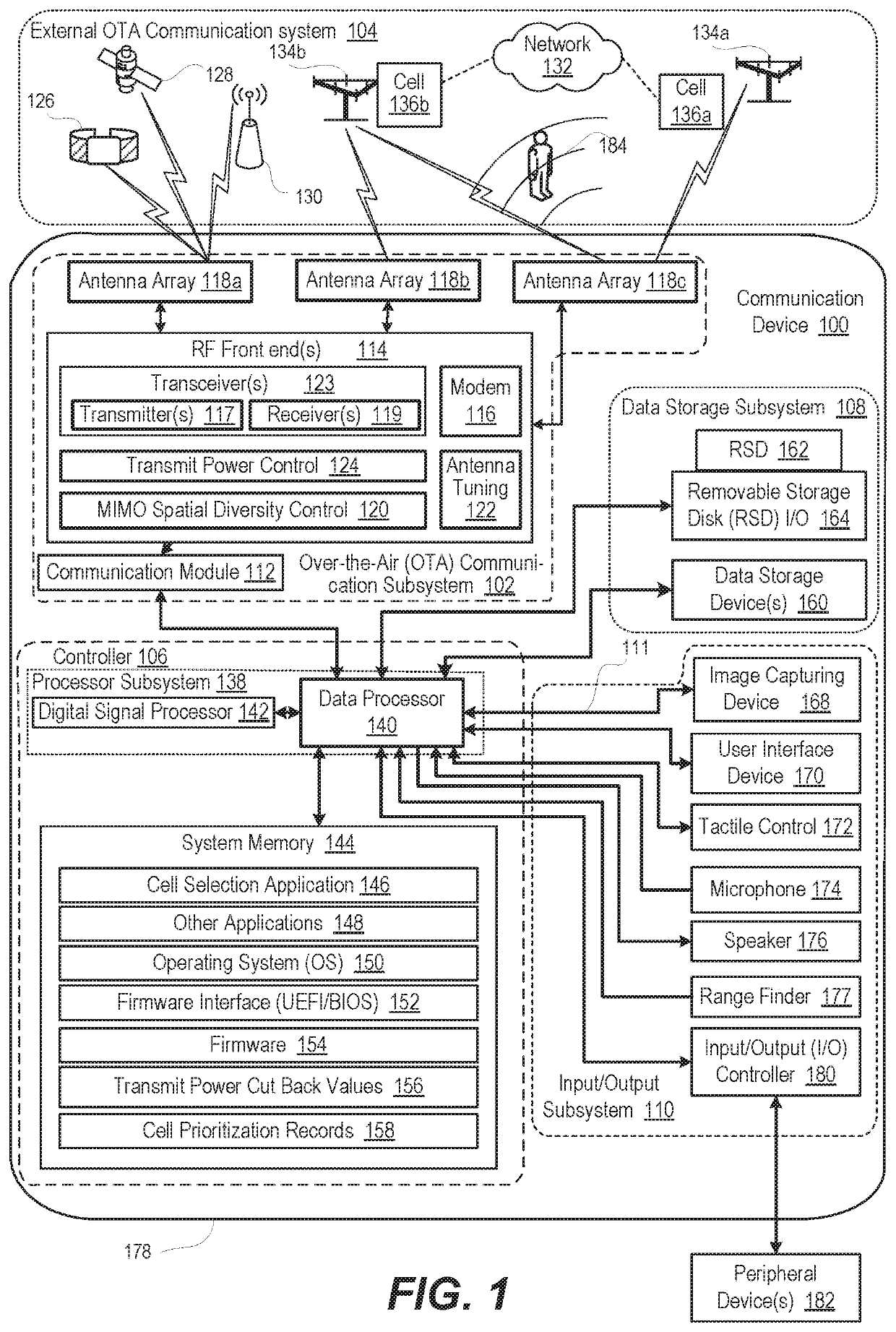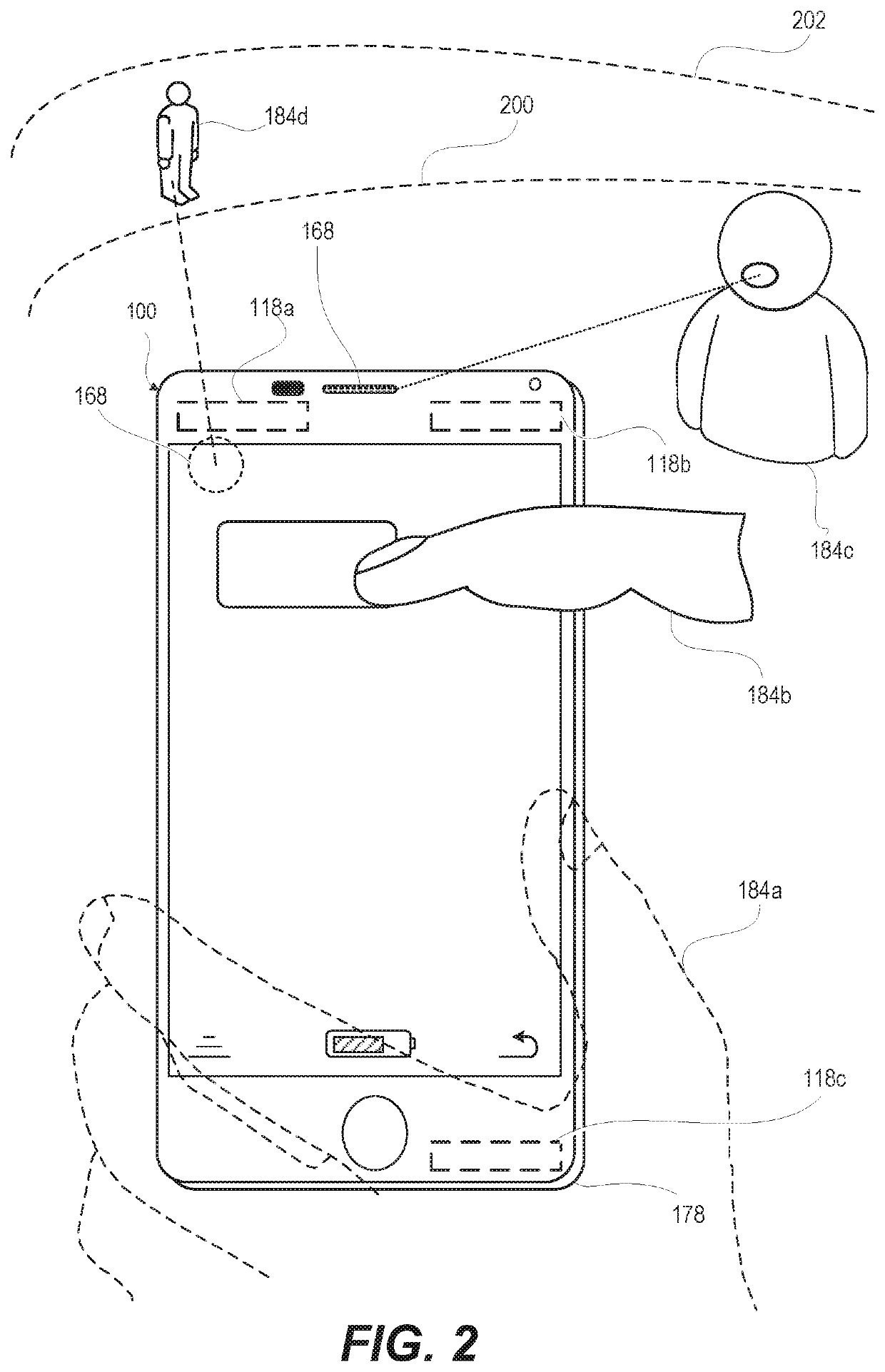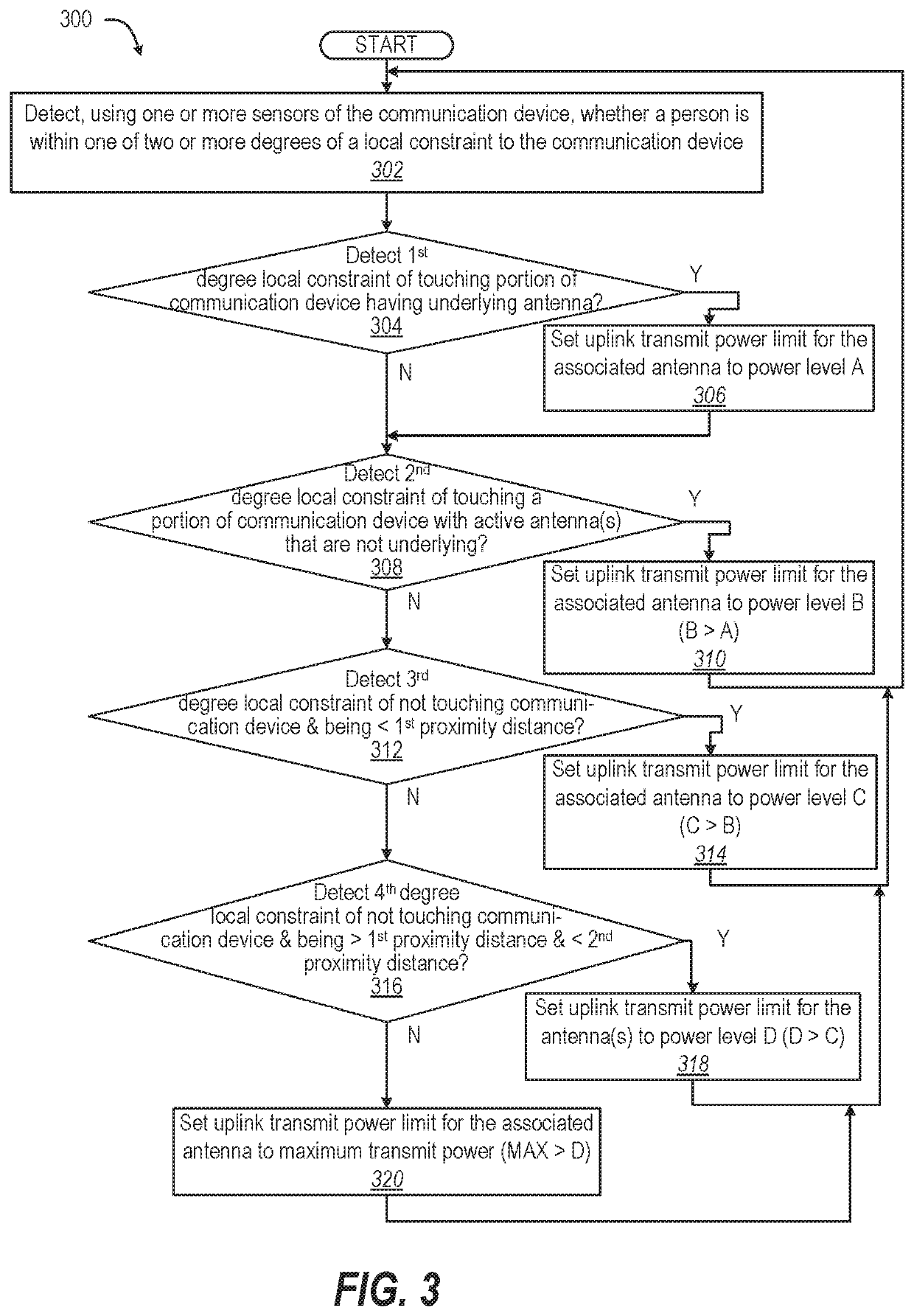Uplink power limit aware cell selection
a technology of uplink and cell selection, applied in the field of communication devices and the cell selection process of communication devices, can solve the problems of limiting the transmit power of uplink at the cell edge, affecting user experience, battery service life, and ue performan
- Summary
- Abstract
- Description
- Claims
- Application Information
AI Technical Summary
Benefits of technology
Problems solved by technology
Method used
Image
Examples
Embodiment Construction
[0011]According to aspects of the present innovation, a communication device, a method, and a computer program product provide for dynamic cell selection based, in part, on transmit power cut back necessitated by a local constraint. A transceiver of the communication device scans for one or more cells within communication range of the communication device. The transceiver supports a maximum transmit power. An uplink transmit power limit of the transceiver associated with each one of the one or more cells is determined, based, at least in part, on the maximum transmit power. A determination is made whether a local constraint is applicable to the communication device. The local constraint requires uplink transmit power to be less than the maximum transmit power. The uplink transmit power limit is cut back in response to determining that the local constraint is applicable. Selection of the one or more cells for connecting with the communication device is prioritized based, at least in ...
PUM
 Login to View More
Login to View More Abstract
Description
Claims
Application Information
 Login to View More
Login to View More - R&D
- Intellectual Property
- Life Sciences
- Materials
- Tech Scout
- Unparalleled Data Quality
- Higher Quality Content
- 60% Fewer Hallucinations
Browse by: Latest US Patents, China's latest patents, Technical Efficacy Thesaurus, Application Domain, Technology Topic, Popular Technical Reports.
© 2025 PatSnap. All rights reserved.Legal|Privacy policy|Modern Slavery Act Transparency Statement|Sitemap|About US| Contact US: help@patsnap.com



